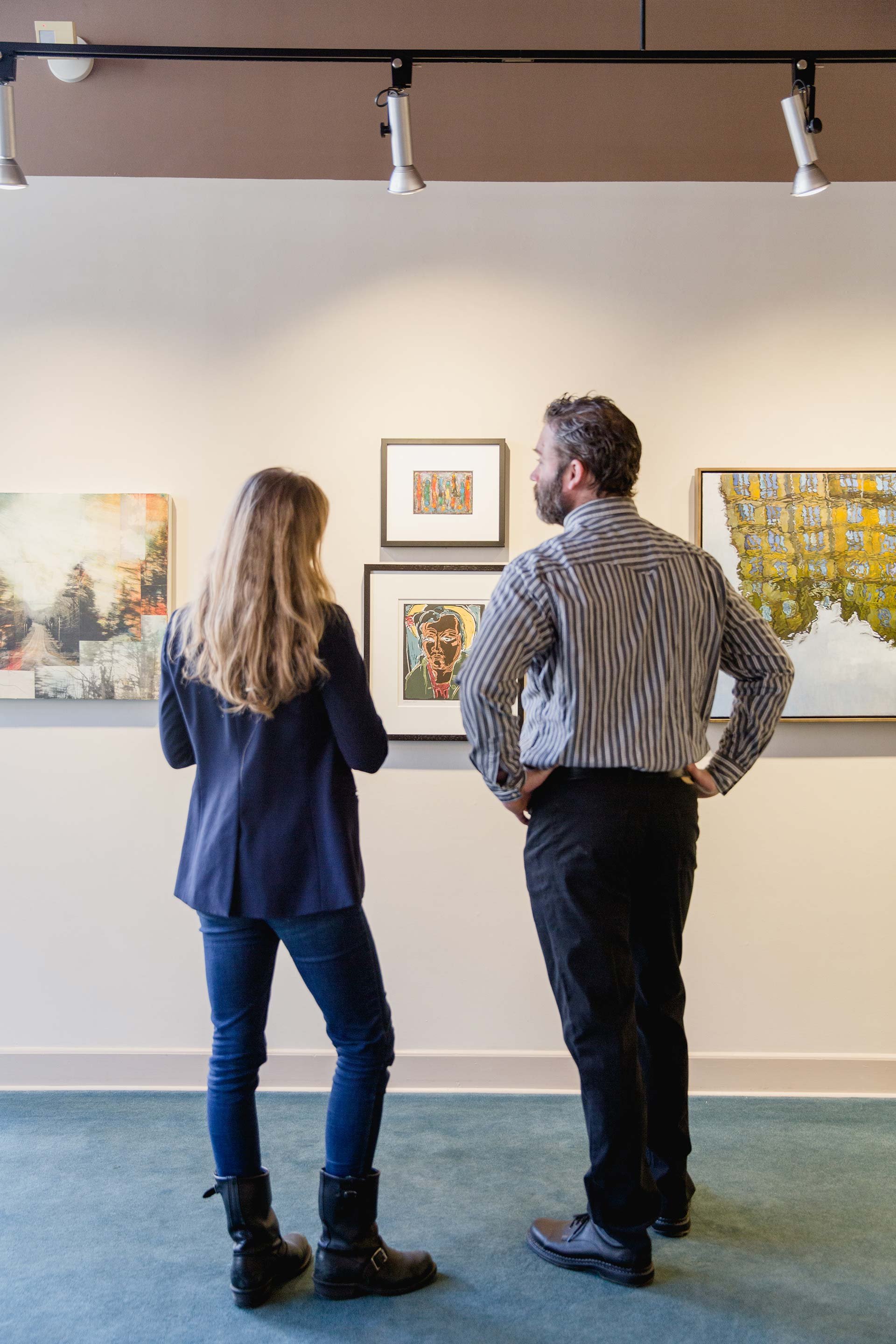
February Greenhut Artists Group Exhibit
Greenhut Artists
No opening reception
(CLICK IMAGE TO ENLARGE; CURSOR OVER ENLARGED IMAGE FOR DETAILS)

Greenhut Artists
No opening reception
(CLICK IMAGE TO ENLARGE; CURSOR OVER ENLARGED IMAGE FOR DETAILS)
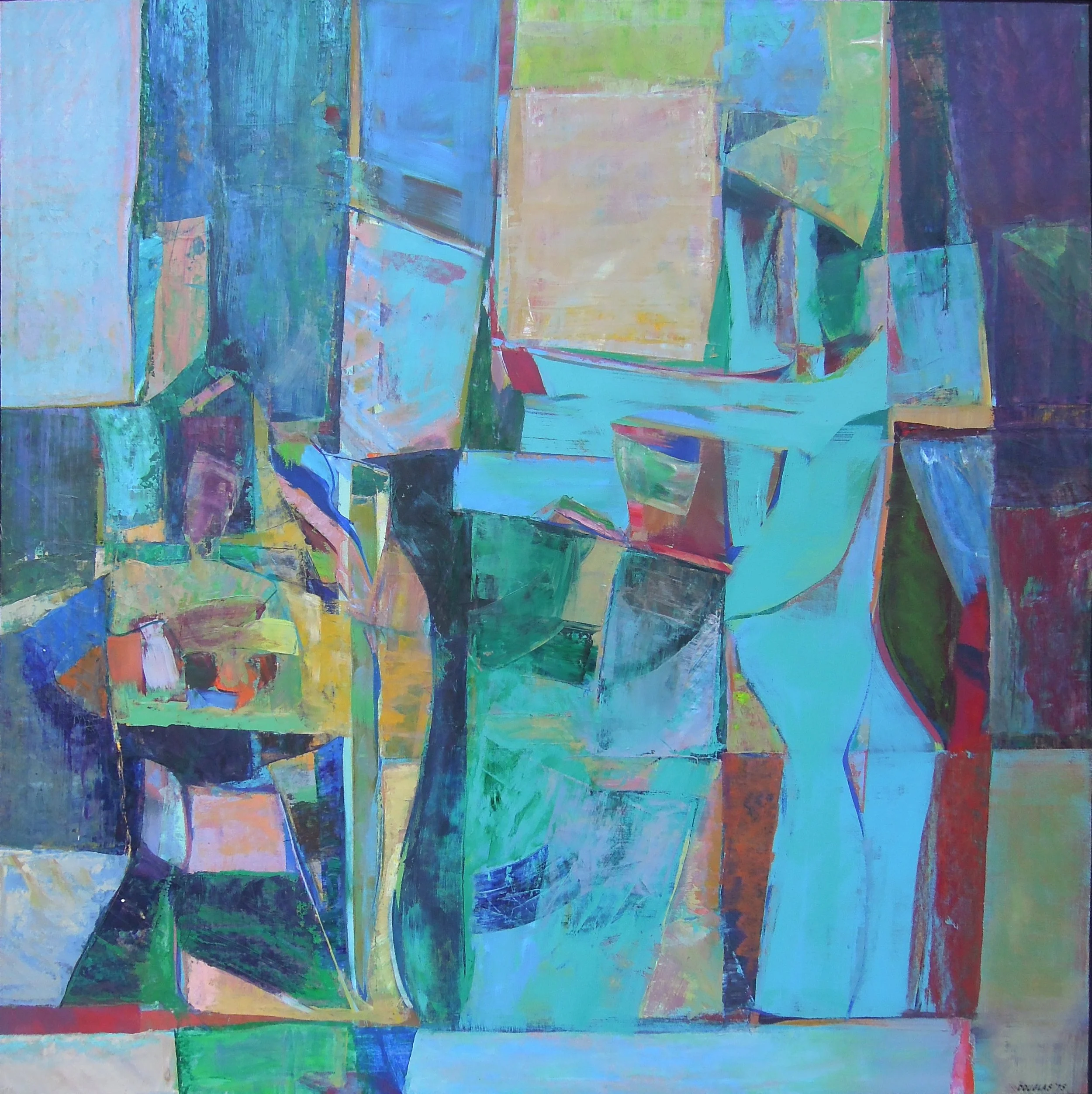
Ed Douglas-SOLO EXHIBITION
Opening reception, Thursday May 7, 5-7pm
(CLICK IMAGE TO ENLARGE; CURSOR OVER ENLARGED IMAGE FOR DETAILS)

Greenhut Artists group show
No opening reception
(CLICK IMAGE TO ENLARGE; CURSOR OVER ENLARGED IMAGE FOR DETAILS)
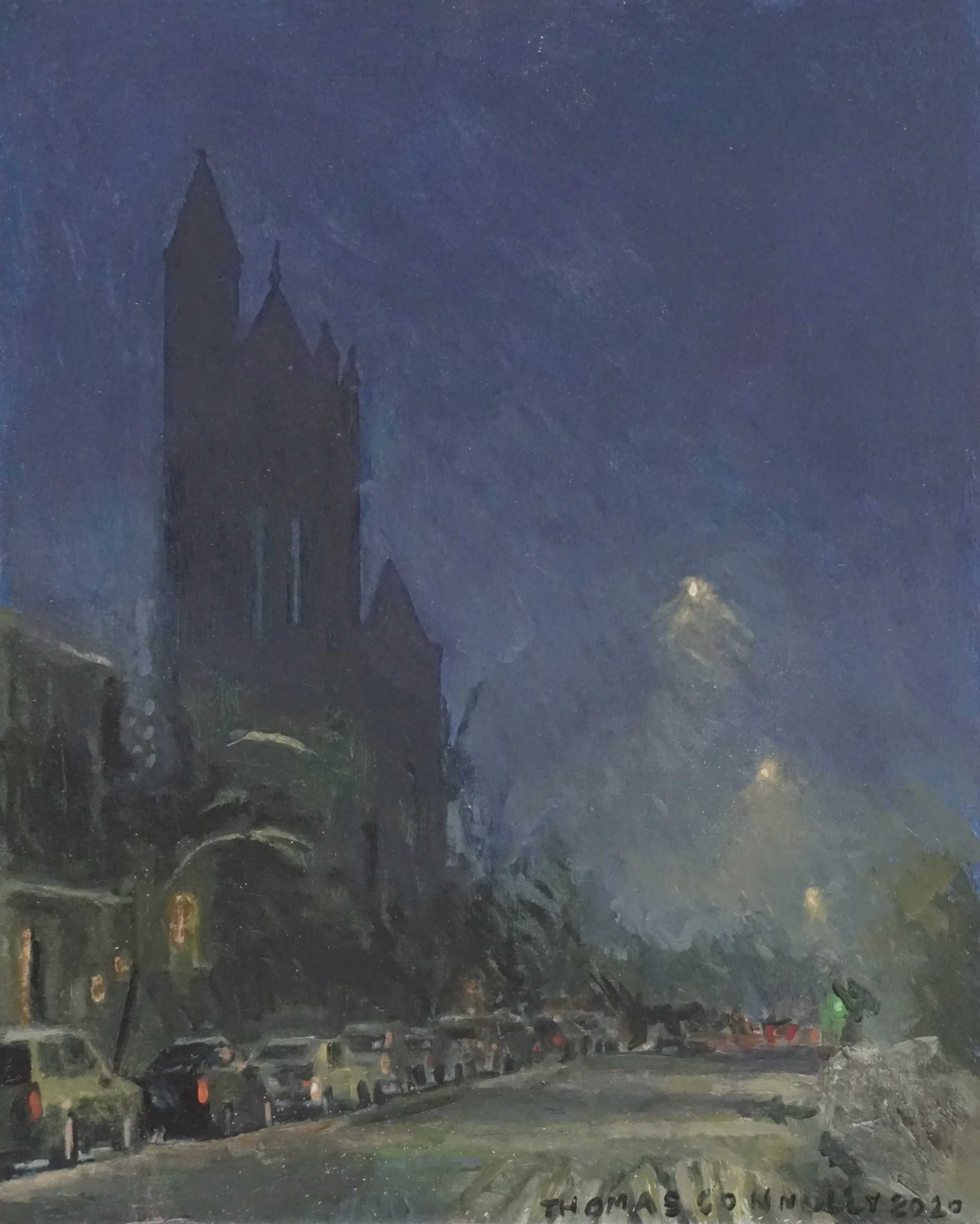
thomas connolly-SOLO EXHIBITION
(CLICK IMAGE TO ENLARGE; CURSOR OVER ENLARGED IMAGE FOR DETAILS)
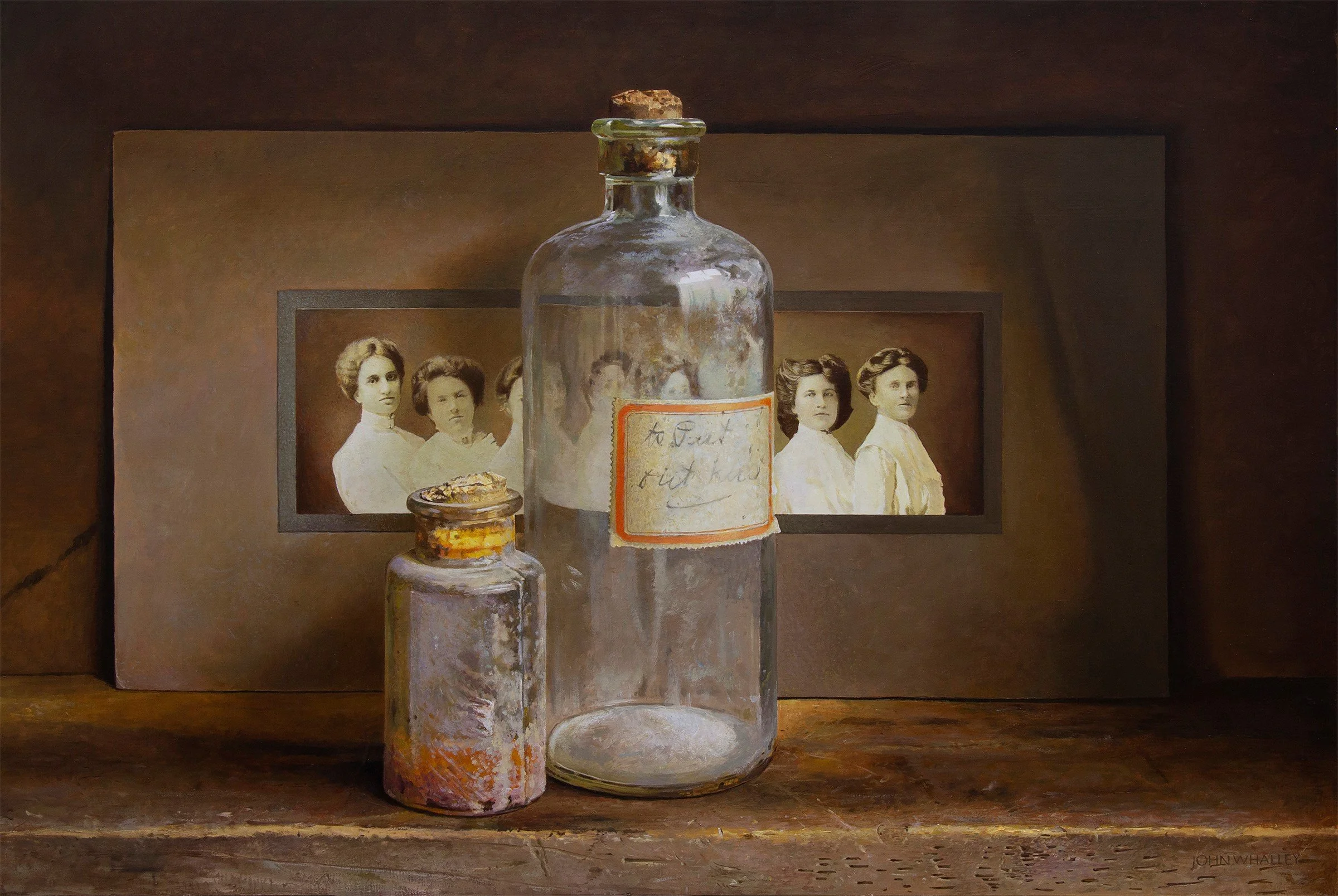
john whalley-SOLO EXHIBITION
(CLICK IMAGE TO ENLARGE; CURSOR OVER ENLARGED IMAGE FOR DETAILS)
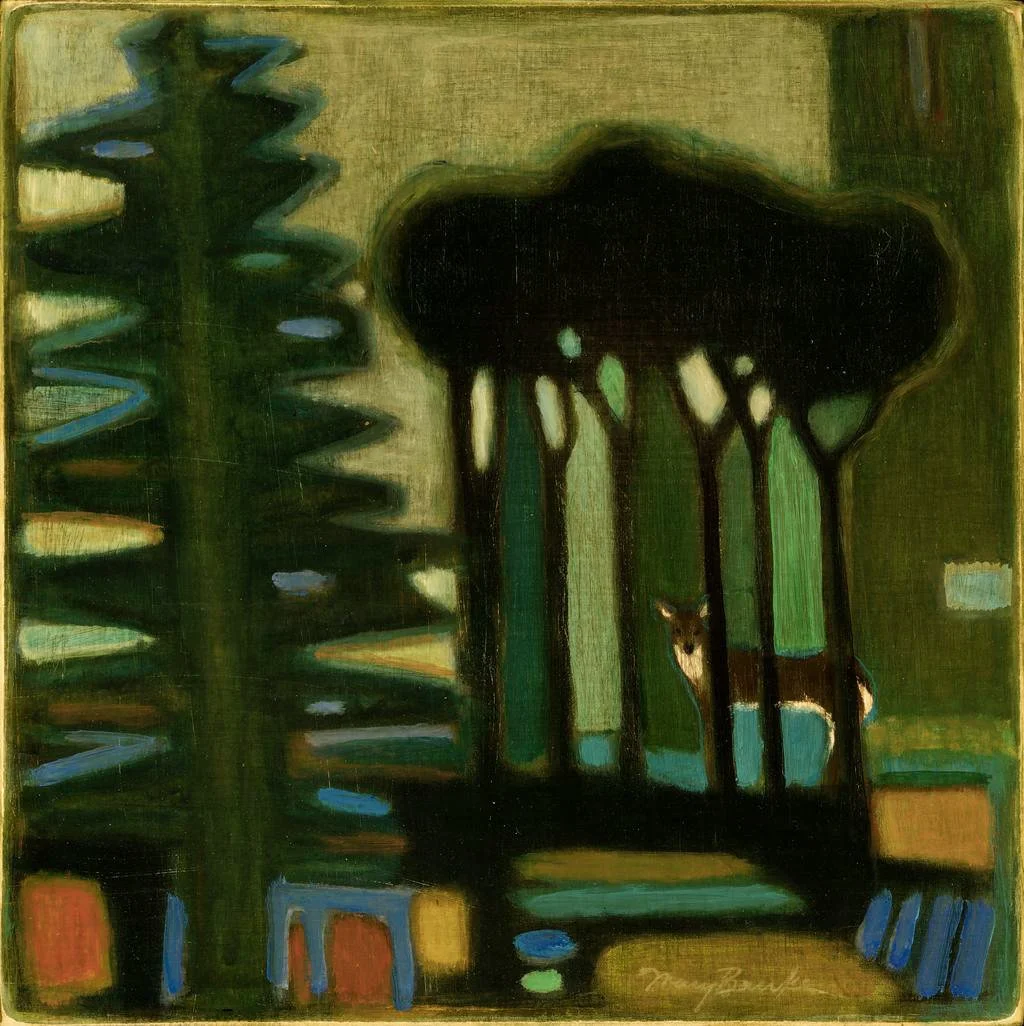
31ST Annual Holiday Show
Dec. 4 - Jan. 31
Greenhut's 31st Annual Holiday Show. This exhibition includes new work by our entire roster of artists. With styles ranging from realism to colorful abstraction and everything in between, there is something for everyone!
(CLICK IMAGE TO ENLARGE; CURSOR OVER ENLARGED IMAGE FOR DETAILS)
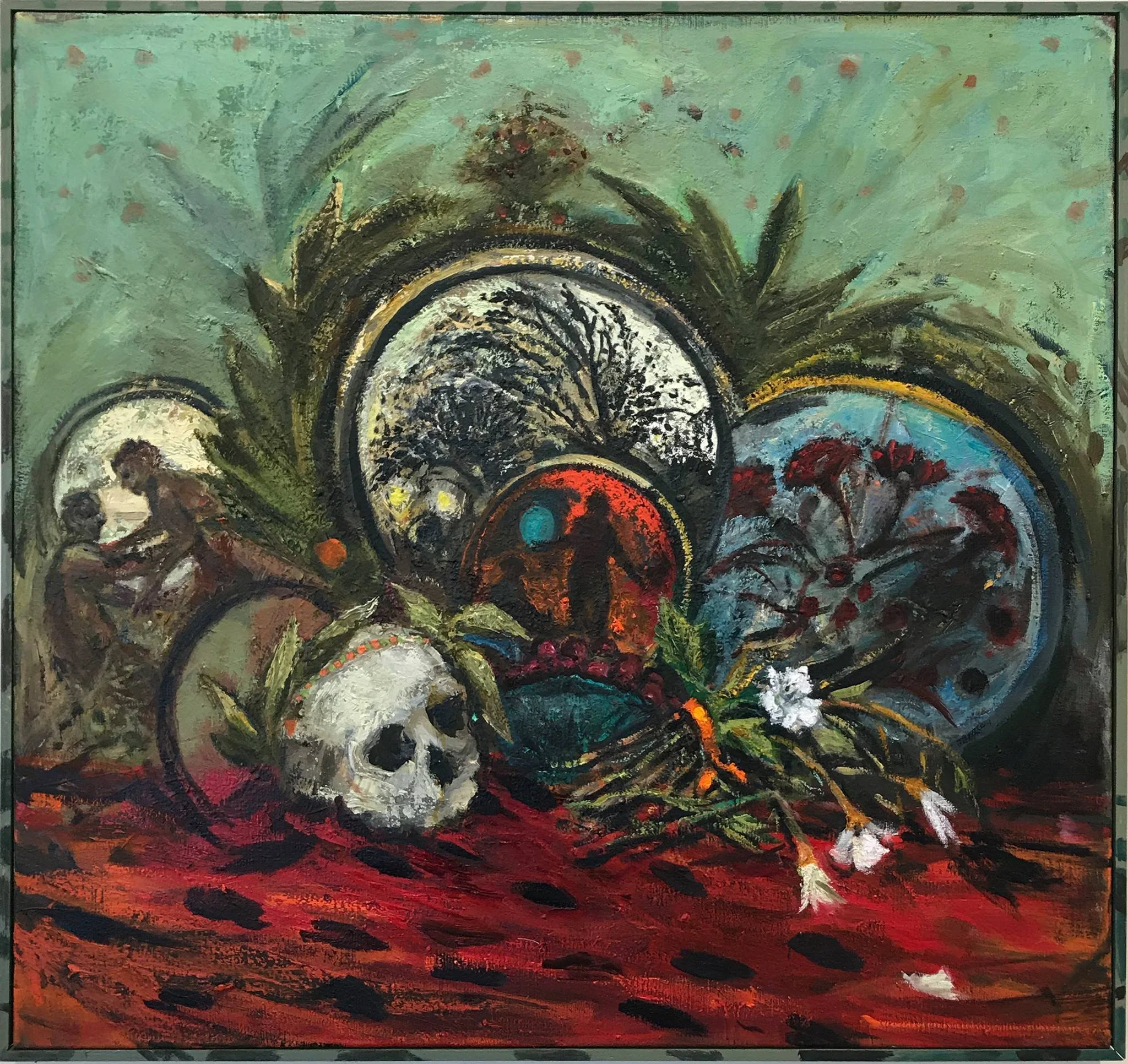
Nancy Morgan Barnes and Company
November 6 - 29, 2025
Opening reception, Thursday, November 6, 5-7pm
Featuring: Nancy Morgan Barnes, Robert Barnes, Victoria Barnes, Tim Conte and Read Pate
ARTIST STATEMENT
Both Bob and I come from middle class and Midwest backgrounds with similar comfortable childhoods. Art was neither encouraged nor discouraged. Floral or landscape reproductions were on our walls and in the homes of our neighbors.
As parents, we dragged our kids to openings, galleries and museums (sometimes willingly). Our friends were frequently other painters or collectors, and, as a result, conversation circled around art and art related subjects. All of our kids have an interest in the visual arts in very different ways because of their shared background. They are designers, crafters, painters and serious collectors.
I am grateful to Greenhut Galleries for allowing me to have this exhibition which includes my two sons in law, my daughter and my husband… I am interested in seeing how our works look in a shared space.
~ Nancy Morgan Barnes

Nancy Morgan Barnes is a narrative realist. Often the concept of the narrative has led us to make-believe worlds of the ideal and a daydreaming of better times. Through the composing in all of her works, one finds explicitly rendered chaos and order….things are not as they appear.
Born in South Bend, Indiana, Barnes received her undergraduate degree from St. Mary’s College in South Bend, Indiana, and her graduate degree from Indiana University, Bloomington in 1971. She has taught at DePauw University and the Indiana University Bloomington. Barnes has won numerous merit awards and prizes, including a Good Idea Grant from the Maine Arts Commission. Her work is in the permanent collections of the Indiana University Art Museum and Indiana State Museum.
(CLICK IMAGE TO ENLARGE; CURSOR OVER ENLARGED IMAGE FOR DETAILS)
Opening Reception: Thurs., Oct. 2, 5-7 pm
Artist Talk: Thurs., Oct. 16, 6 pm

Joel Babb’s Maine
September 4 - 27

ARTIST STATEMENT
Lately it has become apparent to me that a place or a view speaks eloquently at one moment but later is reserved or ordinary or has no appeal. The Fall season in Maine is freighted with thoughts of oncoming winter, and the beauty of the woods is a spectacle of joy with a sense of parting. Summer is green with contentment and accomplishment, but Fall, for a few days, has a whole spectrum of light and color that affects me like a Handel chorus: the full range of harmony and counterpoint out loud. Add to this the joyful voice of a brook flowing through, and you have the perfection of nature. This is a “living moment,” and I hope these paintings capture some of those moments for you.
In a review by Emily Esfahani Smith in The New Criterion she quotes from the novel Gilead, by Marylin Robinson:
It has seemed to me sometimes as though the Lord breathes on this poor gray ember of Creation and it turns to radiance—for a moment or a year or the span of a life. And then it sinks back into itself again, and to look at it no one would know it had anything to do with fire, or light. That is what I said in the Pentecost sermon. I have reflected on that sermon, and there is some truth in it. But the Lord is more constant and far more extravagant than it seems to imply. Wherever you turn your eyes the world can shine like transfiguration. You don’t have to bring a thing to it except a little willingness to see. Only, who could have the courage to see it?
(This is in a review of a book by Jeffrey Hart, The Living Moment: Modernism in a Broken World. In Gilead, the words are supposedly from a letter of an elderly pastor to his son.)
~ Joel Babb
Learn more about Joel Babb HERE.
(CLICK IMAGE TO ENLARGE; CURSOR OVER ENLARGED IMAGE FOR DETAILS)
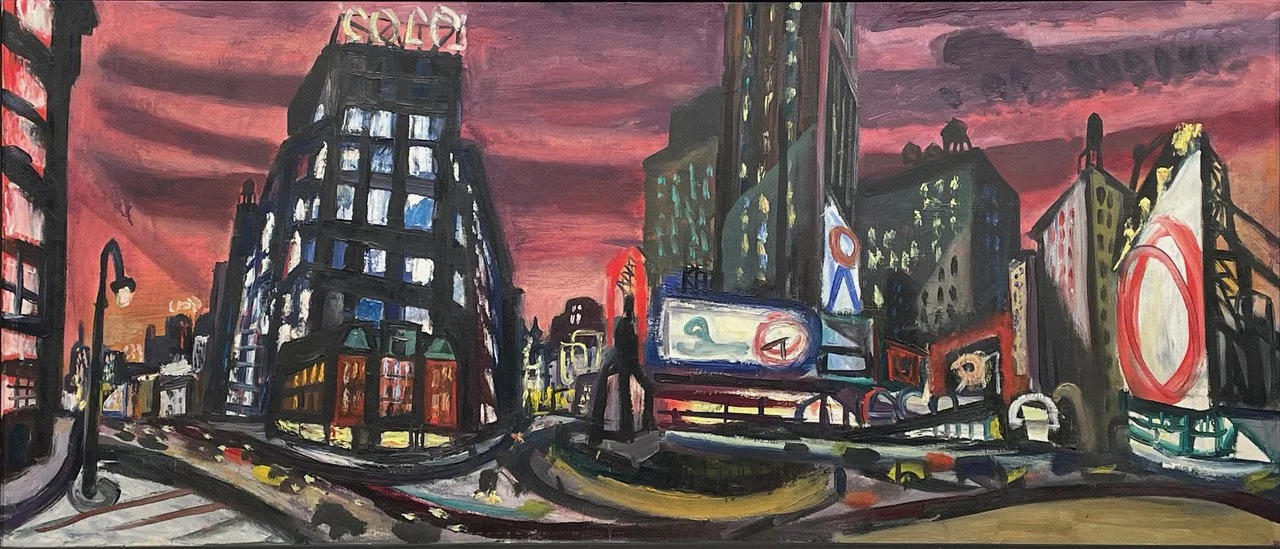
MAurice Freedman: In the eye of the Beholder, the new york to Maine Connection
Maurice Freedman: In the Eye of the Beholder:, The New York to Maine Connection
Essay by Mary Sherman

Nearly 100 years have passed since Maurice Freedman left Boston for the bright lights of Manhattan. There, he joined his peers, eager to steer the art world’s attention their way. For Freedman, his break came in 1933, the year he joined the prestigious Midtown Galleries.
But before establishing himself in New York, Freedman made a crucial detour to Paris. Although he admired the dazzling brushwork of the American Ashcan School, he was after more than depictions of democracy’s gritty reality. He wanted to not just mirror his age but to embody it as well. And Paris was, hands down, the place for that.
During his time abroad, Freedman studied the Cubist canvases of artists like Paul Cezanne to develop a style that married his already bravura technique with a new pictorial language, projecting multiple perspectives onto a single plane. From artists like Paul Gauguin and Henri Matisse, he learned to free his palette, ratcheting up the intensity of his colors to create syncopated rhythms of off-kilter hues as in “Entrance to Jordan’s Bar”, whose warm interior draws viewers away from the noisy, lurid strokes outside, into a brightly lit room beyond. In “Riverside Park,” he does something similar. Sweeps of a dusky mauve recreate twilight’s melancholy sway. But then Freedman counters the impending gloom with a fiery red figure, defiantly looking out from the canvas, under a streetlight’s high-pitched flow as if daring the night to descent.
These qualities run throughout Freedman’s New York work. From the raucous neon billboards and towering skyscrapers, arcing forward and back across the congested rose lit sky of “Times Square,” to the clotted, smoke-filled backdrop of “Pulaski Skyway,” Freedman’s imagery careens between the celebratory heights of the jazz age and the sober reckoning of the city’s darkened alleys – from the glittering cockpit view of “New York Nocturne,” to the daily grind of the grey toned “Subway 81st Street.” Like Edward Hopper’s use of dead-end diagonals, the tracks in Freedman’s nearly deserted subway lead to an abrupt about-face. Staring back is a red sign, clearly suggesting, “Stop. You’ve reached the end of the line.”
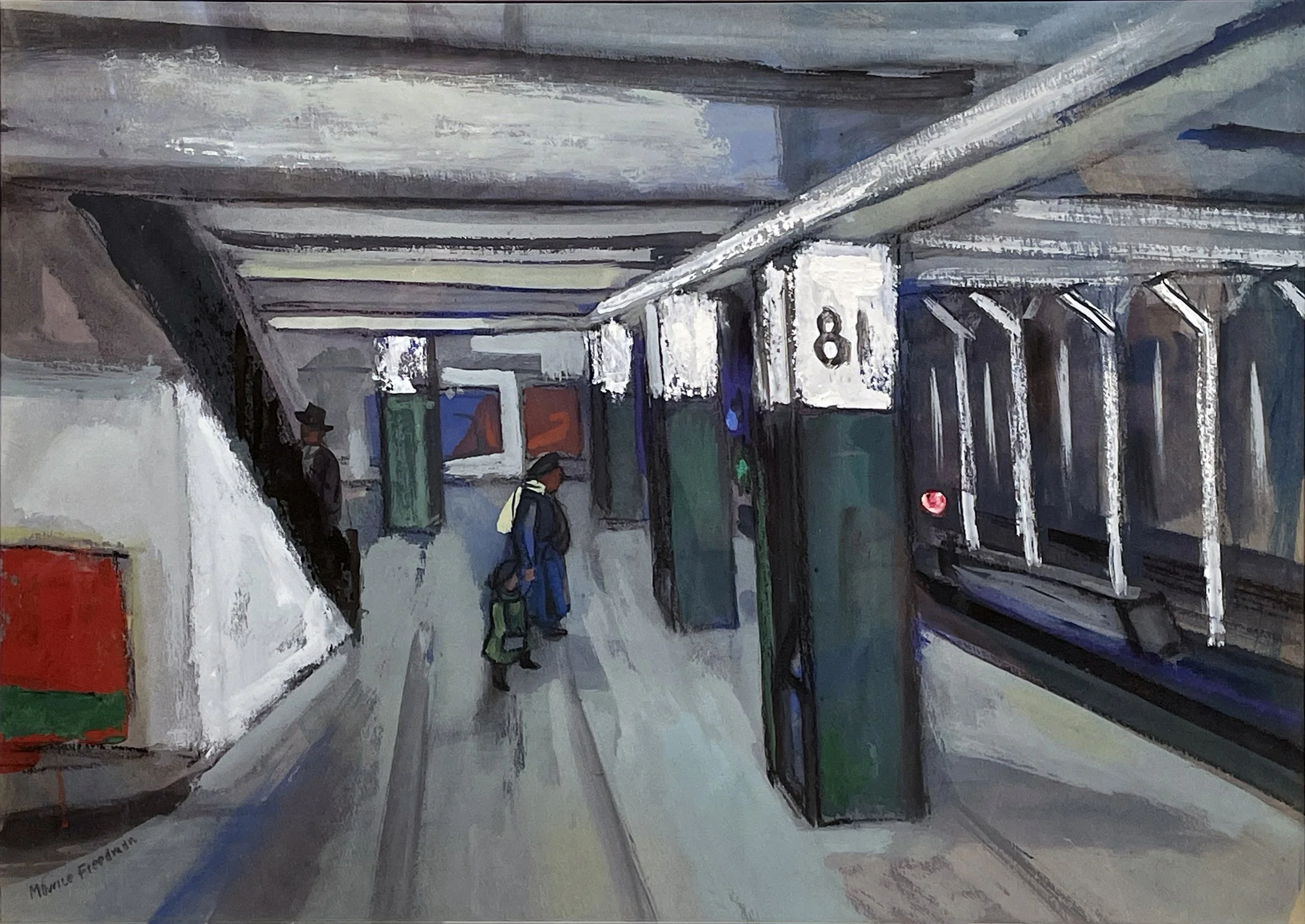
As his friends Marsden Hartley and John Marin discovered, Freedman found New York City best taken with a chaser of respite. For Freedman, his New England roots answered the call, Maine being chief among them. There he sought to recharge his energy and try new things. Freedman embraced the region’s proud seafaring past, as in the jewel-toned, “Enveloping Night,” and its fiercely beautiful, natural habitat as seen in “Mountain Stream” and “Forest Struggle,” He encapsulated the breathtaking, starkness of winter in works such as “Winter Formations.” In the rhythmic zig-zag shapes observed from his train rides along the Hudson River in “River Thaw,” he anticipated Maine’s hard-won summer repose, delivered in ‘Harbor Haze,” “Stonington Pond,” and “Stonington Lily Pond,” whose abstracted reflections shimmer like the jeweled facets of a Tiffany lamp.
To this Freedman added the sheer joy of being a part of it all. His jubilant handling of full-throated color patterns, punctuated by small flecks of viridian and orange dancing along the surface of “Newton Falls,” bursts with energy. “Orange Clock Still Life” and “Mountain Laurel” brim with the warmth and charm of being nestled within the great outdoors, accompanied by vivid arrangements of flowers picked on walks and a moment of calm at the end of a delightful day. This feeling is, also, so sweetly depicted in “Serenade to Bruno.” In these works, Freedman not only shows us the world around us, but he also stirs out hearts’ yearnings to partake of its magnificence.
Mary Sherman is the founding director of the international arts organization Transcultural Ex-change and an art critic who began her writing career in the 1980s as the critic for the Chicago Sun-Times. Since then, she has served as a regular contributor and freelance writer for a number of publications, including the Boston Globe, Boston Herald, ART News, Art New England, artsfuse and Hyperallergic.

Maurice Freedman was born in Massachusetts, lived in New York, and painted in Maine. His desire to become an artist developed early, and, in high school, he took classes at the School of the Museum of Fine Arts, Boston until 1921. Freedman then enrolled at the Massachusetts Normal School of Art (Massachusetts College of Art) in 1922 where he also earned a scholarship to continue his studies. In 1926, he enrolled at the Art Students League. There only a year, he believed diving into the art scene overseas would be a better use of his time and talent, and he moved to France where he took classes at Calarossi’s and the Académie de la Grande Chaumière. A year later, he was discovered, and his work purchased for the Lambert Collection. Upon his return to the U.S., he secured life-long gallery representation at Midtown Galleries in New York.
In Maine, Freedman’s work can be seen in these public collections: Bates College Museum of Art, Bowdoin College Museum, Portland Museum of Art, Ogunquit Museum of American Art, Monhegan Museum of Art and History. A select list of museum collections across the country: Brooklyn Museum, NY, Butler Institute of American Art, OH, Carnegie Museum of Art, PA, Denver Art Museum, CO, Los Angeles County Museum of Art, CA, Milwaukee Art Museum, WI, New Britain Museum of Art, CT, Peabody Essex Museum, MA, Pennsylvania Museum of Fine Arts, PA, Provincetown Art Association and Museum, MA, Smithsonian Museum of Art and History, Washington D.C.
(CLICK IMAGE TO ENLARGE; CURSOR OVER ENLARGED IMAGE FOR DETAILS)

On Balance
Tina Ingraham
ARTIST STATEMENT
Why I paint
I was born with the desire to draw and paint. When I visit a museum I imagine myself alive in places and times depicted in master paintings. But I am not painting there. So, I feel very lucky now to reference my own painting history and master works for motivation and inspiration.
Painting Maine’s varied landscape lifts my spirit. I imagine Pissaro and Cezanne painting together in the Oise River valley north of France. Did they mix their paint in the studio before venturing into the open air? Or did they mix their paints while on site? I’ve tried both.
When I look at Vermeer’s “Woman Holding a Balance” I wonder, was he influenced by “Madonna del Parto” by Piero Della Francesca? Like most Dutch artists Vermeer may have traveled to Italy in the mid seventeenth century. Also, he had converted to Catholicism upon marriage. I wonder, was Vermeer’s “Woman Holding a Balance” depicted as a Madonna? Her bowed head is framed in a halo-like rimmed hood, and her jacket is parted to show her pregnancy. This is similar to Piero’s depiction of the Madonna, but was it intentional?
Did Antonio Lopez Garcia view Piero’s work? Garcia traveled to Italy in 1955 on a scholarship to study Renaissance painting. Was “Greek Head and Blue Dress” his response to “Madonna del Parto?” Did he paint the blue dress transparently thus alluding to the madonna parting her robe to show her pregnancy. These are questions I ask myself, and why I respond with a painting like “Time for Cake.”
I live this cycle of balance. I paint more than anything else I do. I go back to the past for information, wisdom and inspiration and that moves me forward to paint for the mastery of it.
~ Tina Ingraham

Born in Kenton, Ohio in 1947, Tina Ingraham received her Bachelor of Science in Design at the University of Cincinnati in 1970, and an MFA from Brooklyn College of CUNY in 1996 where she studied with Lennart Anderson. She received a Guggenheim Fellowship, a Milton and Sally Avery Fellowship, grants from the Pollack Krasner Foundation and Maine Commission for the Arts. Her residency fellowships include MacDowell Colony, Dorland Mountain Art Colony and The Robert M. MacNamara Foundation. Ingraham lived and worked in Italy from 1999-2002 to study Master works integral to her painting. She taught at The International School of Painting Drawing and Sculpture, Bowdoin College, Hyde School, Brooklyn College and Stephens College. Ingraham’s paintings hang internationally in private and public collections, including the portrait of Joshua Lawrence Chamberlain commissioned by Bowdoin College. Reproductions of her Harbor Fish Market paintings appear in Carl Little’s and David Little’s Paintings of Portland, and in Paintings of Maine, A New Collection by Carl Little.
(CLICK IMAGE TO ENLARGE; CURSOR OVER ENLARGED IMAGE FOR DETAILS)
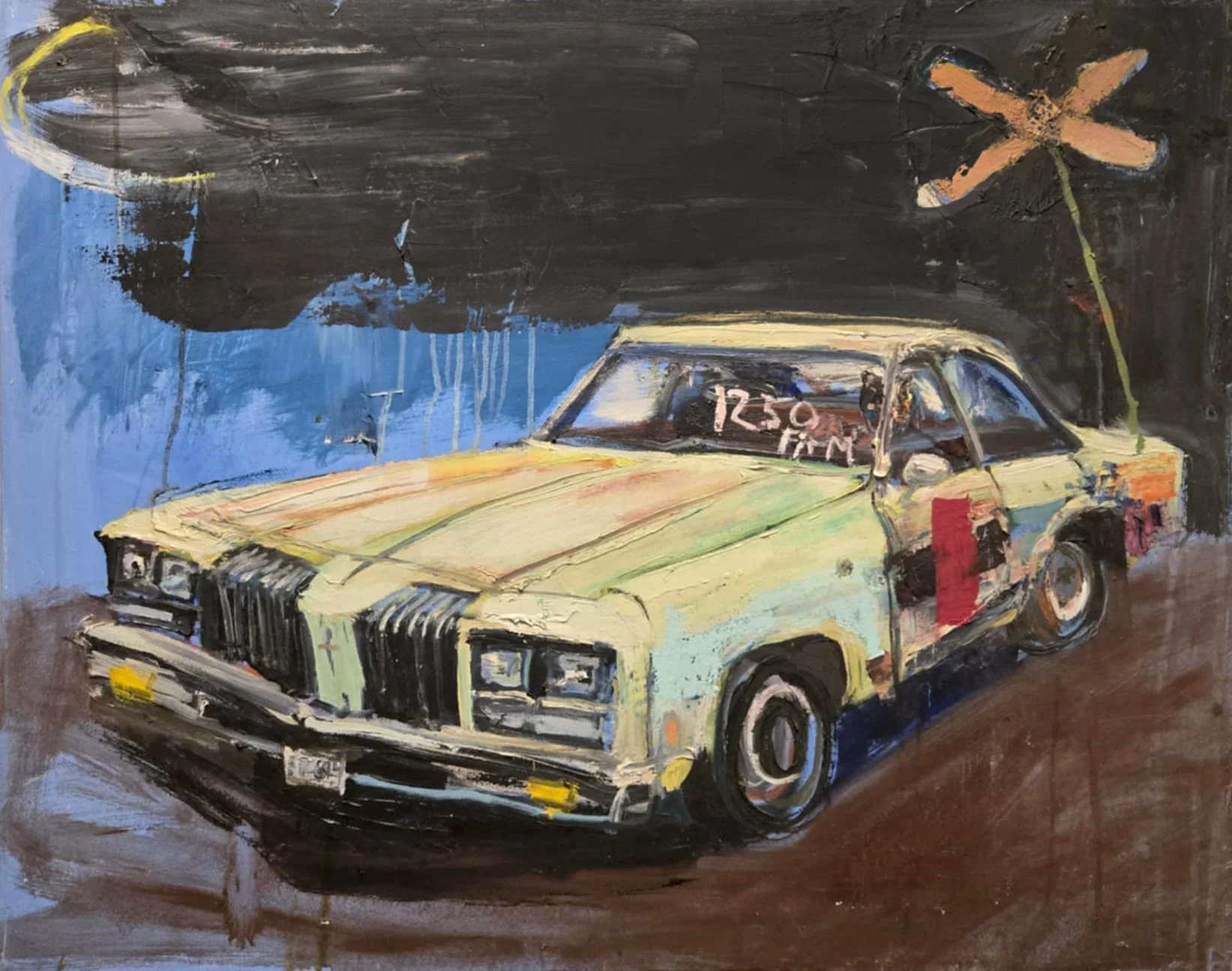
hands at 10 and 2 matt blackwell
jUNE 5 - 28, 2025
ARTIST STATEMENT
The mileposts were streaming past, that old Trans Am was dying hard, two wheels in the grass. — Neil Young
Everybody's going somewhere I heard it in a dream, but when there's too much of nothing it just makes a fellah mean. — Bob Dylan
I've been painting cars for about twenty-five years. It's a subject I return to in my work when I run out of ideas. The forms and lines give me something to go after that has a certainty and rigor that pulls me from the ditch of painting’s endless ambiguity. Like the forms of cars from the 60’s and 70’s, Bubbletop, Squarebody, Fastback and Wide-track Pontiacs. Way more interesting than today's cars that look like sneaker designers drew them up.
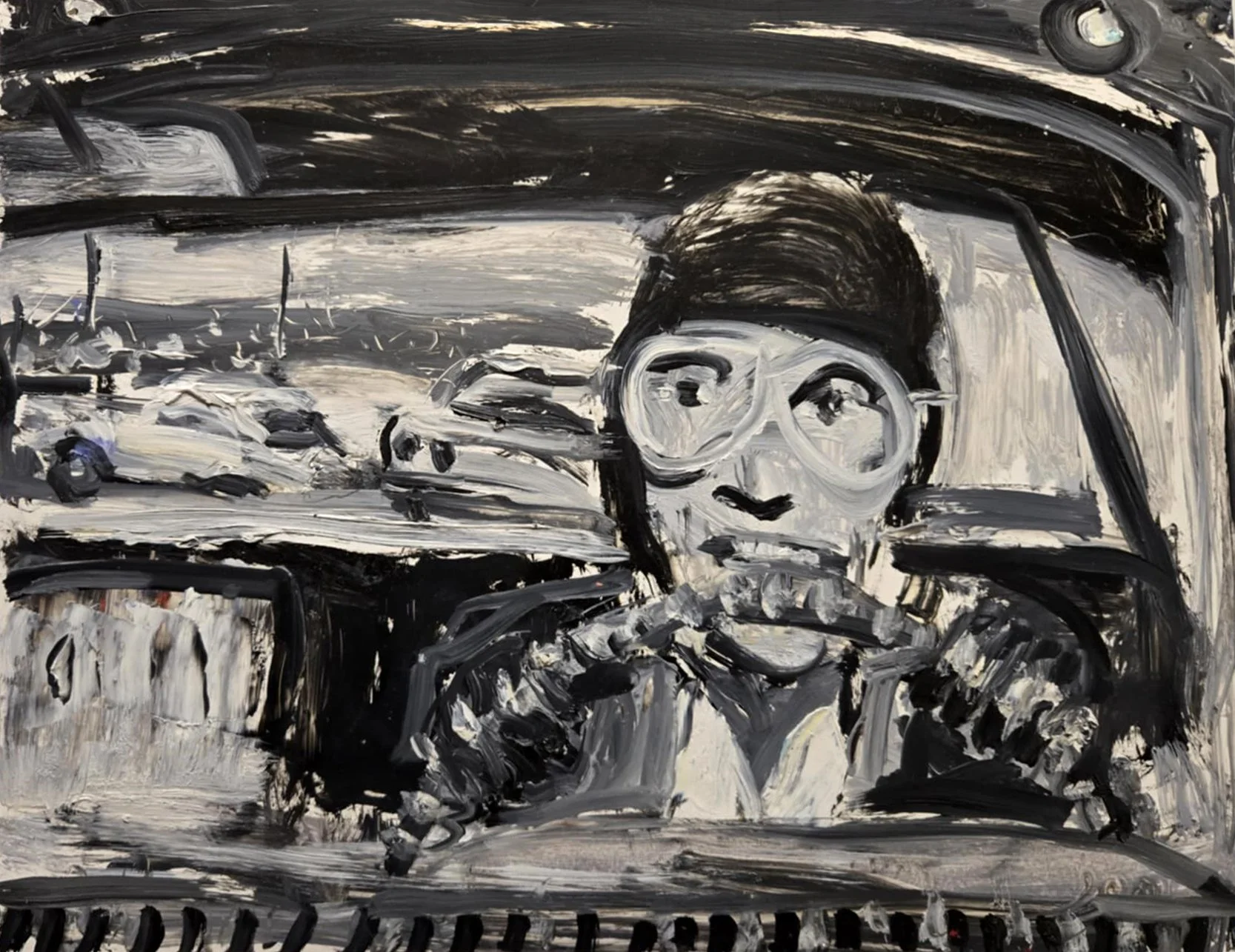
My memory is full of car images: my Dad sitting in his 63 Olds in the driveway listening to jazz keeping time with his ring on the horn rim; blasting down the Mass Pike in my brother's Saab in a snowstorm; countless rides hitchhiking cross country chasing foggy dharma. Ross Converse. my mechanic friend at 85 Park Street in Portland, lending me vehicles: A Divco step van, a 66 Morris mini station wagon, a 68 BMW 2002 (best car I've ever driven). Cars, like paintings, are projects that are always ongoing and need attention. Bring me that Buick Elecktra from the back of the studio. Huh, now I see that yellow is all wrong. Can’t believe it took me so long to see that! The studio is like a mechanics garage yard.
In the 90’s in NYC, I could get sculptures shown but no one would look at the paintings. I thought… well it's like selling used cars! I was fashioning sculptures out of metal and sometimes from car parts that littered the streets. The streets also were full of old beater cars ripe for subject matter. Cadillacs, Dodge Darts, Valiants, Ford Granadas and the occasional Gremlin. Cars were often abandoned or dumped in my post-industrial neighborhood in South Williamsburg. Polaroid land camera with installation film helped the hunt. I’m still on the lookout with internet car sites, the online marketplace, and sometimes TV offering subject matter.
Where the car appears is also important to the paintings: New Mexico, Western New York state and Maine are all places I visit frequently. Sometimes it's just a paint space. Sometimes the car is the landscape. An Appaloosa car can look in parts like a Rothko...that thrills me. The cars are moving away from the past and towards uncertainty. They echo my figure paintings in this regard. We are always moving through things. Some cars are finished, some are abandoned, some are tributes to lost friends.

Matt Blackwell’s vision of America is inspired. He works within a variety methods, at times raw and spontaneous, and at others analytical, but always delivered with driving authority and a touch of absurdity. Rather than reflecting a forlorn and nostalgic condition, his participants are depicted as free spirits who not only persevere but often prevail. His highly expressive and lavishly imaginative paintings are infused with irreverent humor, their cheerfulness often offset by dark elements lurking in the background, such as a skull or a devilish figure. Some of the works have an uncanny, fairy-tale quality.
Matt Blackwell holds a BFA from the Portland School of Art in 1977. In 1980, he studied at the Skowhegan School of Painting and Sculpture and received his MFA from the University of North Carolina in 1988. In 2006, Blackwell was the recipient of the American Academy of Arts and Letters’s Purchase Award. In 2013, he was selected to participate in Piece Work, Maine the Biennial Exhibit at the Portland Museum of Art., after which, his sculpture was purchased by the museum. In 2015, he was awarded the John Simon Guggenheim Memorial Foundation Fellowship.

The Through Line New paintings by jim flahaven
May 1 - 31, 2025
ARTIST STATEMENT
It’s nice to occasionally step out of the sphere of content-driven work and just look. In my own practice I’ve been slowly shaving small pieces of meaning away, and aspiring towards something that is meaning-less and fully rooted in the experience of looking: What happens when those two colors are placed side by side? What happens when this shape interrupts that shape? What I hope for is a kind of visual pinball, where the eye pings from one thing to the next, triggering in the brain some kind of bing or chatter or whoop. The paintings that have that effect on me are those made by artists who found themselves in a place of transition, sometimes with considerable growing pains (there is a long list of mid-century modernists who fit the bill). The tension, stress, and physical energy manifest in these works both amaze and delight me. I suppose one can find in this work a metaphor for the condition of modern life, with its accelerated pace and constant change, and the notion of competing ideas and ideologies grinding against one another.
That sense of transition or awkwardness is what I try to sublimate into my work. I mostly make paintings that have no reference to the world around us. The paintings are about visceral reactions to paint, perhaps nothing more. My paintings should be filled with little contradictions, reworkings, and the kind of spatial logic that only exists on canvas. Working this way allows me to be completely engaged in the moment. Whatever frame of mind presents itself on a given day will be applied to the painting. This is important. If I were a realist, once I had nailed down the basic structure and story of the piece I’d be essentially trapped or forced down a very narrow pathway for the remainder of the painting. There is no need for me to force myself into a frame of mind that I may have established (and subsequently abandoned) weeks prior.
Still, I’d be lying if I said that I was unaffected by what is unfolding today. None of us gets to work in a bubble. While the works of art may be a respite, or an attempted escape from the events of the world, the artist absorbs dreadful news daily. Those areas where the paint is ground into the surface, or where I’ve scraped and sanded and scraped some more? That is a little manifestation of anxiety, worry or anger being released from me and distilled into something interesting, gnarly, expressive. Maybe that is an area of visual emphasis. Maybe it is a howl.
~ Jim Flahaven

Jim Flahaven grew up in the Midwest. He attended the University of North Texas where he received his BFA in Drawing and Painting in 1986. He received his MFA from Ohio State in 1988. He has exhibited his work in Canada and throughout the United States. He has taught at numerous colleges throughout the Northeast. He currently teaches drawing and painting at Southern Maine Community College, and he teaches drawing, painting and 2D design at the Maine College of Art and Design. He lives in South Portland with his family.

Maine: The painted state
Greenhut’s biennial landscape show, Maine: The Painted State, is both a proud nod to Maine’s storied and outsized place in American Art History, and a celebration of the exciting ways the landscape tradition continues, how it is being carried on, and in some cases, reinvented, by contemporary Maine artists.
Maine has been an artist magnet for over 100 years. The allure of its rugged coastline and the romance of the sea, its lakes and islands, its wild beauty and isolation and, of course, the distinctive qualities of its northern light have captivated generations of painters. Our landscape has been celebrated -- mythologized, really -- in classic works by some of the greatest painters in American Art History, from Thomas Cole to Frederick Church to Winslow Homer to Andrew Wyeth, Marsden Hartley, Neil Welliver, and beyond.
But the magic of Maine’s landscape is not a finite quantity, confined to a specific period. It is, in fact, eternal, and Maine remains a vital locus of artistic inspiration, coursing with creative energy. Our biennial is a celebration of the exciting ways the landscape tradition continues.
Joel Babb, Scott Baltz, Chris Beneman, Matt Blackwell, Mary Bourke, Sophie Cangelosi, Thomas Connolly, David Driskell, Grant Drumheller, Diamond Duryea, Maurice Freedman, Philip Frey, Kathleen Galligan, Roy Germon, Tom Glover, Alison Goodwin, Tom Hall, Lindsay Hancock, Maret Hensick, Thomas Higgins, Craig Hood, Jon Imber, Tina Ingraham, Hilary Irons, William Irvine, Elizabeth Kelley, John Knight, Sarah Knock, Margaret Lawrence, Buzz Masters, Jonathan Mess, Dean McCrillis, Daniel Minter, Nancy Morgan Barnes, Tom Paiement, Alison Rector, Glenn Renell, Alec Richardson, Kathi Smith, Bruce Stahnke, Jimmy Viera, Christopher Volpe, Neil Welliver, John Whalley, Richard Wilson, David Wilson
(CLICK IMAGE TO ENLARGE; CURSOR OVER ENLARGED IMAGE FOR DETAILS)
Greenhut artists group show
No opening reception
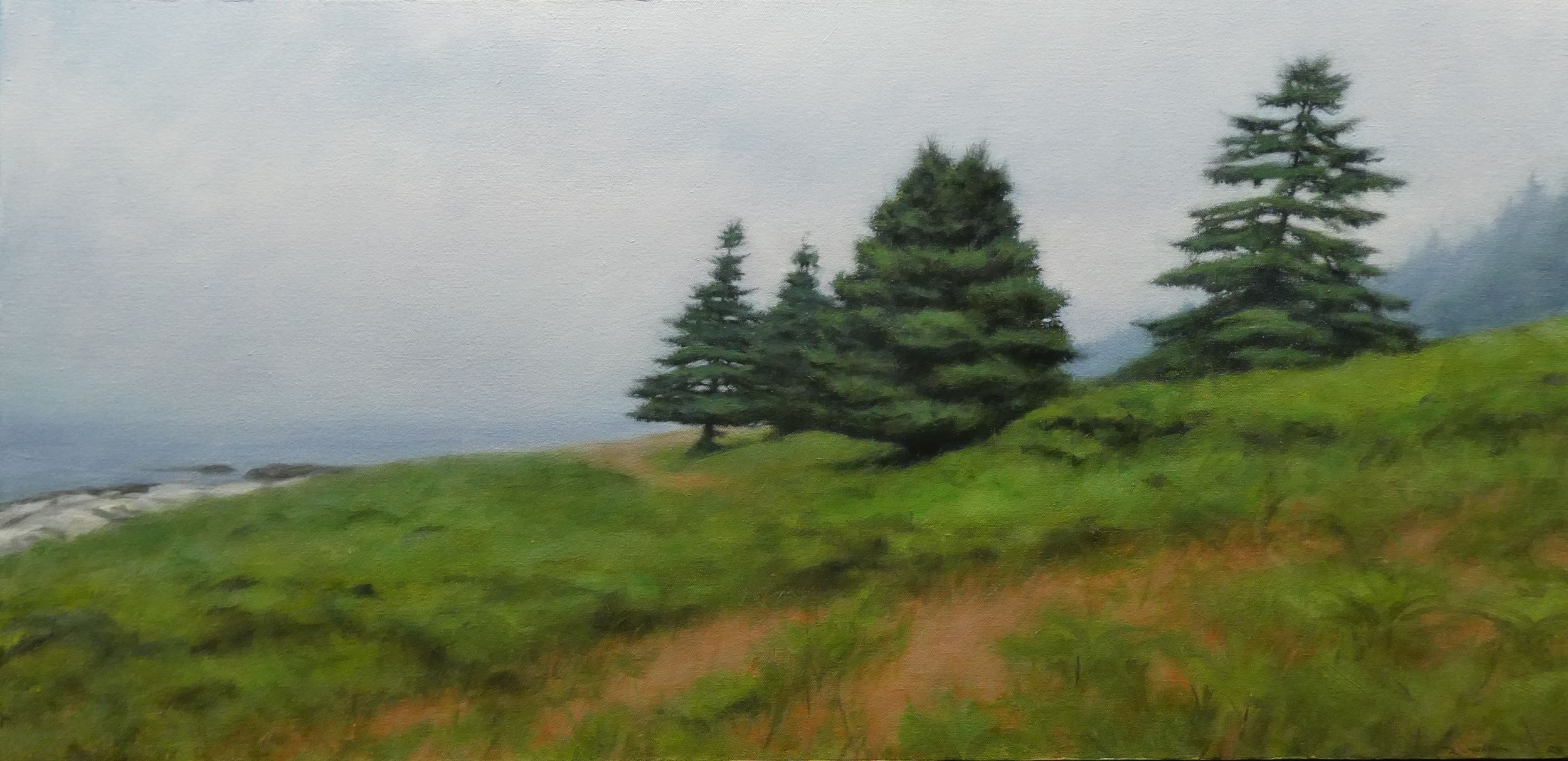
30th Annual Holiday Show
Dec. 5 - Jan. 25
Greenhut's 30th Annual Holiday Show. This exhibition includes new work by our entire roster of artists. With styles ranging from realism to colorful abstraction and everything in between, there is something for everyone!
(CLICK IMAGE TO ENLARGE; CURSOR OVER ENLARGED IMAGE FOR DETAILS)
Maret Hensick and Crystal Cawley
Opening Reception: Thurs., Nov. 7, 5-7 pm
Opening Thursday, October 3, 5-7pm

Borrowed from the writing of author and poet Rachel E. Harding, PhD, her expression hidden mouth talking resonates with this new body of work. My personal interpretations are: the literal idea of concealing the mouth to relay a message in secret; the drum that delivers messages over distance, the voice of the ancestors that guides without being seen, the hidden inner voice. The voice of tools or instruments that can be used to speak when our mouths cannot.
— Daniel Minter
Viewing “Hidden Mouth Talking” is like immersing oneself in an all-encompassing epic novel or film. We are carried along a story that traverses centuries, affects thousands of lives and pauses to dwell, here and there, in personal tales, tragedies, joys and turning points. By the time we reach “The End,” we are satiated, transformed and closer in some way to the people and events that have shaped the narrative. And we feel we understand a culture, a time, a place and its people with much more nuance and appreciation than before.
Read the full review HERE.
— Jorge Arango, Portland Press Herald


Daniel Minter is an American artist known for his work in the mediums of painting and assemblage. His overall body of work often deals with themes of displacement and diaspora, ordinary/extraordinary blackness; spirituality in the Afro-Atlantic world; and the (re)creation of meanings of home. Minter works in varied media – canvas, wood, metal, paper. twine, rocks, nails, paint. This cross-fertilization strongly informs his artistic sensibility. His carvings become assemblages. His paintings are often sculptural.
Minter’s work has been featured in numerous institutions and galleries including the Portland Museum of Art, Seattle Art Museum, The Charles H. Wright Museum, Tacoma Art Museum, Bates College, University of Southern Maine, Center for Maine Contemporary Art, The Farnsworth Museum, The David C. Driskell Center and the Northwest African American Art Museum. A travel grant from the National Endowment for the Arts enabled him to live and work in Salvador, Bahia Brazil where he established relationships that have continued to nurture his life and work in important ways.
Minter has illustrated over a dozen children’s books, including Going Down Home with Daddy which won a 2020 Caldecott Honor and Ellen’s Broom which won a Coretta Scott King Illustration Honor; Seven Spools of Thread: A Kwanzaa Story, winner of a Best Book Award from the Oppenheim Toy Portfolio; and The Riches of Oseola McCarty, named an Honor Book by the Carter G. Woodson Awards. Minter served on a team of artists commissioned by the City of Seattle Parks Department to create a water park in an urban Seattle neighborhood. He was also commissioned in both 2004 and 2011 to create Kwanzaa stamps for the U.S. Postal Service.
As founding director of Maine Freedom Trails, he has helped highlight the history of the Underground Railroad and the abolitionist movement in New England. For the past 15 years Minter has raised awareness of the forced removal in 1912 of an interracial community on Maine’s Malaga Island. His formative work on the subject of Malaga emerges from Minter’s active engagement with the island, its descendants, archeologists, anthropologists and scholars. This dedication to righting history was pivotal in having the island designated a public preserve. In 2019, Minter co-founded Indigo Arts Alliance, a non-profit dedicated to cultivating the artistic development of people of African descent. Minter is a graduate of the Art Institute of Atlanta and holds an Honorary Doctorate of Arts from The Maine College of Art.
(CLICK IMAGE TO ENLARGE; CURSOR OVER ENLARGED IMAGE FOR DETAILS)

JOHN WHALLEY: TIMEWORN
August 1 - August 31, 2024
Artist Statement for Timeworn:
The idea for this show centered around my choosing objects or scenes that somehow spoke to the passage of time, of survival and endurance. Whether it be a century-old fish house on the Maine coast, things I have discovered in nature, or tools and objects collected around the state’s flea markets, yard sales or antique stores, the subjects for this show were carefully chosen to offer different stories of how time leaves its mark on all things. In some cases I have paired similar objects, to show how "members of a family" might wear the effects of time differently. One can be left imagining the activities that caused the patinas and textures etched on objects. Or in the case of the seashells, pine cones or dog skull, how these objects that once sheltered life within now take on a different kind of “life” and meaning of their own, devoid of their authors. Wrenches, forks and putty knives were put through much labor to wind up looking just so. And the watch I found on a beach at low tide set upon a worn tile inscribed with measurements spoke to me of time-keeping and the ways that we measure our time here.
Having just reached my 70th birthday, the theme of time spoke to me in a new, richer way, and I hope that this group of paintings and drawings will have something to say to the viewer as well.
~John Whalley
Advancing the tradition of American realists and acknowledging the Dutch masters, John Whalley’s paintings go well beyond mere technique. His work exudes tremendous warmth, luminosity and charm. He responds to what he calls “the beauty that speaks softly.” He was born in Brooklyn, New York and currently lives in midcoast Maine. Whalley received his BFA from the Rhode Island School of Design in 1976.
John’s work is included in many national and international collections, including those of the Portland Museum of Art, the Bates Museum of Art, the Colby College Museum of Art in Maine; the Museum of Biblical Art, Dallas, Texas; the Puratos World Heritage Library, Saint Vith, Belgium; the Georgia Museum of Art, Athens, Georgia; and the Kemper Museum of Art, Kansas City.
Read the review HERE.

Thomas Connolly- smoke and mirrors
July 5-27, 2024
Opening reception Thursday, July 11, 5-7pm
Artist Statement:
This collection of pieces from the past year or so depicts scenes that caught my attention during my day to day life. Portland has always been dear to me, and some of these paintings you may recognize from around town. In December, my family spent some time on Kauai. These paintings are the opposite of grey Portland in the winter.
My dad died in February, and the 30th Street piece could be a portrait of him. I told my son that I was out of ideas for paintings and at my request he shared with me a few photos that he had taken. Genesee is the outcome of that collaboration. My mother's family is from Rochester with the Genesee River and brewery. The landscapes have been painted at a spot that I have been going to for years. They are painted quickly in an attempt to keep up with the changing scene.
Each piece, regardless of place or history, serves as a vehicle from which to enjoy colors together.
- Thomas Connolly
Thomas Connolly is a realist painter known for his architectural paintings of Portland, New York City and beyond. His work conveys a strong sense of place and atmosphere through subtle use of color, adding a richness to the subjects he chooses to paint.
Connolly participated in the Maine College of Art Baie Ste. Marie residency program in New Edinburgh, Nova Scotia. He was juried in to the 2011 Portland Museum of Art Biennial Exhibition, and the 2010 Center for Maine Contemporary Art Biennial Exhibition. He is the recipient of a Pollock-Krasner Foundation Grant and the Sheldon Bergh Award.
Opening Reception: Thurs., June 6, 5-7 pm
Artist Talk: Thurs., June 20, 6 pm
Opening Reception: Thursday, May 2, 5-7pm

THE PORTLAND SHOW
Opening reception, Sat., March 9, 1-3pm
Greenhut’s 12th Biennial Portland Show celebrates our dynamic and rapidly evolving city. With a single subject matter (our beloved city of Portland, Maine), this long-running exhibition consistently surprises with its diverse display of styles, media, and approaches. This year’s Portland Show includes work from 43 Maine artists, each offering a unique perspective on our city.
OPENING RECEPTION SATURDAY, MARCH 9 FROM 1-3PM
Rachel Gloria Adams, Ryan Adams, Chris Beneman, Matt Blackwell, Jeff Bye, Crystal Cawley, Thomas Connolly, Sandi Donnelly, Grant Drumheller, Diamond Duryea, Kate Emlen, Jim Flahaven, Philip Frey, Roy Germon, Tom Glover, Alison Goodwin, Frank Gregory, Ellen Gutekunst, Tom Hall, Lindsay Hancock, Celeste Henriquez, Maret Hensick, Mike Howat, Tina Ingraham, William Irvine, Cade Jarvis, C Michael Lewis, Margaret Lawrence, Dean McCrillis, Dan Mills, Daniel Minter, Nancy Morgan Barnes, James Mullen, Tom Paiement, Sandra Quinn, Alison Rector, Glenn Renell, Alec Richardson, Jenny Scheu, Alice Spencer, Mike Stiler, Sean Ware, Richard Wilson.
(CLICK IMAGE TO ENLARGE; CURSOR OVER ENLARGED IMAGE FOR DETAILS)
Featuring Matt Demers, Keri Kimura, and Thomas Stenquist.
Opening Reception: Thurs., Nov. 2, 5-7 pm
Opening Reception: Oct. 5, 5-7 pm

Alison Goodwin: THE TIL
September 7 - 30, 2023
Featuring Thomas Higgins in the side gallery

the Til n. the reservoir of all opportunities still available to you at this point in your life - all the countries you still have the energy to explore, the careers you still have the courage to pursue, the skills you still have the time to develop, the relationships you still have the time to make - like a pail of water you carry around in your head, which starts off feeling like an overwhelming burden but steadily draws down as you get older, splashing gallons over the side every time you take a step. (From the till, a shopkeeper’s register filled with unspent change + until.)
- Koenig, John. The Dictionary of Obscure Sorrows. New York: Simon & Schuster, 2021.
When my work was first exhibited at Greenhut in 1989, it was characterized by abstract geometric patterns that were seemingly woven together in tapestries to create surreal landscapes. In a review of my first solo show, Margot McWilliams wrote:
“Goodwin simplifies the elements of the landscape, placing them on planes so that they begin to totter off in tilted directions. She divides her canvases into geometric elements, and then decorates them fully with repeated motifs of spirals and rectangles. . . . She saturates the whole with colors that play vibrantly with each other.” (Casco Bay Weekly, July 25, 1991)
I was just 30 years-old and this style was new to me at the time; I had recently abandoned my more traditional landscapes and still lives that had gotten me through art school. I was discovering my voice.

My geometric patterns - with their saturated colors and unruly lines - remained the vocabulary of my work as I began to paint interiors, villages, and still lives that expressed both my own skewed perspective on the world and my sense of home and appreciation for my life in Maine and Vermont. Geometric shapes also formed the faces in my figurative work and my portraits of Saints.
Each pattern I create is - in my mind- its own abstract design. My wallpapers and floors, leaves and waves, eyes and lips, are each their own abstracted element. Many of my interiors also have a painting within a painting- a modernist abstract on the wall of a Fauvist room. Throughout my career, it is these abstract shapes and patterns that I focus on as I work; the final piece is a composition built of these many individual parts, but my inner world is preoccupied with the abstract.
My career in now in its 4th decade and I wish to allow this inner voice its opportunity to be fully expressed, without the distraction of lyric or narrative. This current body of work is what I’ve been whispering all along in every image I’ve created. Now I want it to be heard in a full-throated cry saying that this, in fact, is how I see the world. There is so much that we know and feel within that we rarely get a chance to isolate, identify, and express in a focused and unique way. In the images in my current body of work, I’ve allowed myself to settle into a specific feeling or vision and give the complexities of that emotional space my full attention. ~ Alison Goodwin
(CLICK IMAGE TO ENLARGE; CURSOR OVER ENLARGED IMAGE FOR DETAILS)

Painting for Thomas Higgins is an active and intuitive process of participating in natural spaces. By working primarily on site through direct sensory experience, he seeks a mode of trenchant, painterly realism. Of fundamental interest is the visual complexity of bogs and other ecosystems that inspire his pursuit of the miraculous in the commonplace. Through his expressive mark-making and gestural brushstrokes, Higgins strives for the point when all of the elements have meshed into an essential, emotive image.
Higgins grew up in New Hope, Pennsylvania, graduated cum laude from Maryville College (Tennessee) and received his MS and MFA in painting and drawing from the University of Wisconsin-Madison. His paintings have been displayed in numerous exhibitions in the U. S. and abroad, including at U. S. embassies in Canada, Hungary, Iceland, Gambia, Greece and France. Residencies for which he was selected include Acadia National Park and the Joseph A. Fiore Art Center.
Having taught at Marietta College (Ohio), Colby College, and in the University of Maine System, Higgins retired as Professor Emeritus from the University of Maine at Farmington. He continues to be an outdoor enthusiast and advocate for untrammeled places.
(CLICK IMAGE TO ENLARGE; CURSOR OVER ENLARGED IMAGE FOR DETAILS)
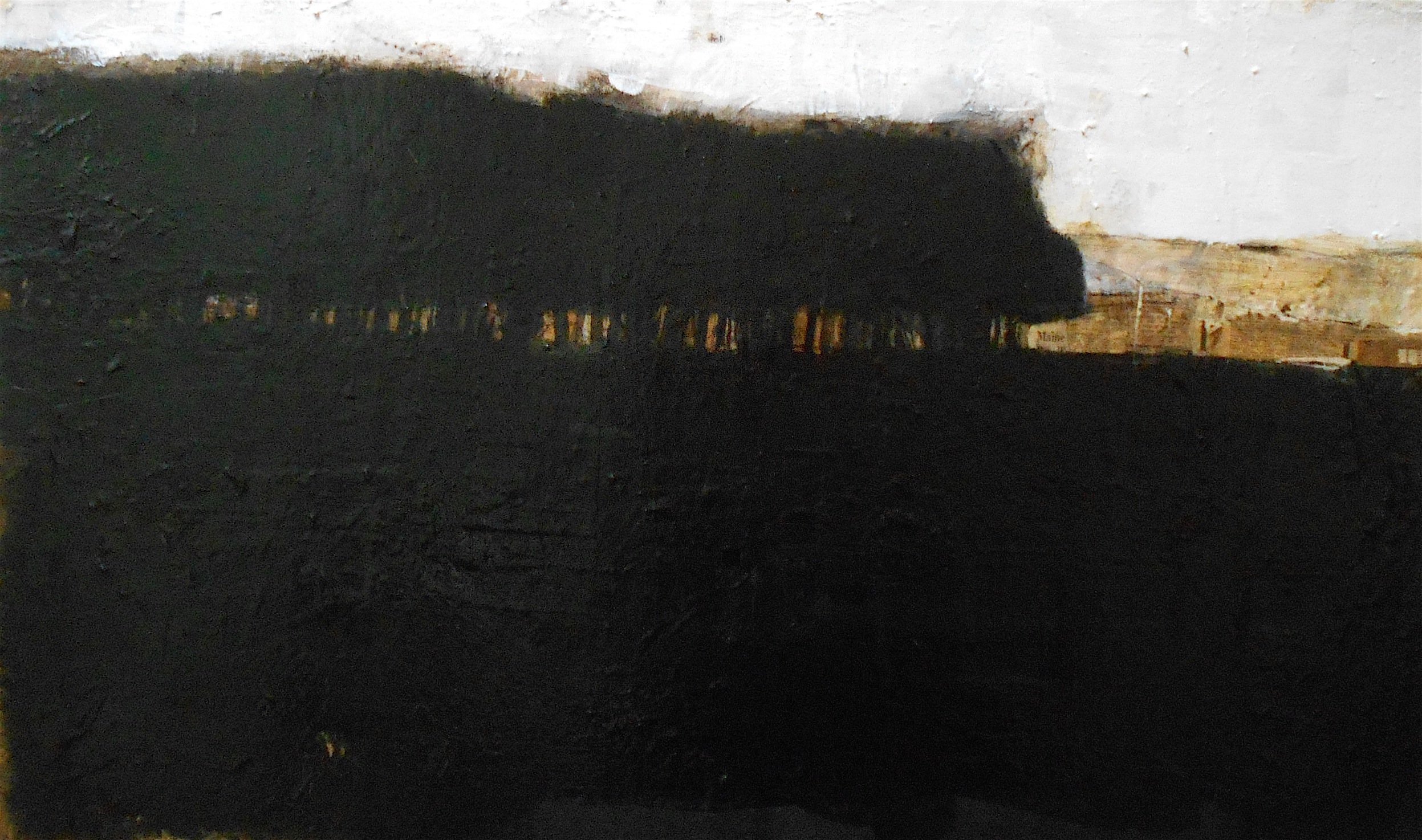
Tom Hall: RECENT LANDSCAPES
August 3 - September 2, 2023
EXHIBIT EXTENDED THROUGH SEPT 2
Tom Hall captures the rugged, haunting beauty of the Maine landscape. Whether pristine or impacted by human hands, Hall emotionally conveys the true spirit of the place depicted in a manner that is immediately recognizable as his own.
Artist’s Statement
Tom Hall interviews Tom Hall

TH1: Let’s start with the basics. You were born where?
TH2: I was born right here in Portland. Matter of fact, right on Congress Street.
TH1: Congress Street? That’s very local. And you went to school…
TH2: University of Oregon, school of architecture, in Eugene. Then to Boston for 12 years, working as a young architect. Working in the big city as a young man was a life adventure. I think all Maine grads should leave the state, see the world, and then return and help make Maine even better.
TH1: Architecture? I thought you went to school for painting.
TH2: No, never took a painting class. Just picked it up along the way. Eventually the art passion took over the architecture passion. The immediacy and the control of painting won me over. I had my first studio in Somerville, MA. Down by the railroad tracks. In a building of 60 artists. I look back and see it as my art school.
TH1: I noticed the barn paintings in this show. That’s different.

TH2: Well, I painted Maine barns when I was that young painter in Somerville. Inspired by the late Wolf Kahn’s barn paintings. Kahn was brilliant. The work and the painter. With his recent passing, the barn paintings here are a simple gesture of thanks.
TH1: Are the small paintings, the tiny ones, studies for larger work?
TH2: No, the small ones are meant as finished pieces. Often bigger pieces are suggested by the smalls but it’s not a given. And a small piece, even the tiny ones, as you say, can be just as monumental as a big.
TH1: These are all Maine landscapes?
TH2: Yes. Actually the locales here represent a life’s footprint, of sorts. A triangle…Lakes Region to Moosehead Lake and back to Portland. I’ve done a lot of hiking over the years…as a landscape painter should. It’s been kind of a Huck Finn life. Of course the work has to get done and done well. That’s what you sign up for.
TH1: And Maine art?
TH2: Oh, one has to be excited. It’s the only option. I’ve seen institutions and galleries come and go. It’s all a cycle. The artist…and everyone else… needs to just work and stop moaning. Do the good work that uplifts and educates… making a better Maine.
TH1: What’s next?
TH2: I’m working on some pieces for a group show in October at Cove Street Arts…on sports.
TH1: Sports? What does a landscape painter do with that?
TH2: Well, that’s what I’m wondering about myself.
(CLICK IMAGE TO ENLARGE; CURSOR OVER ENLARGED IMAGE FOR DETAILS)
(CLICK IMAGE TO ENLARGE; CURSOR OVER ENLARGED IMAGE FOR DETAILS)
Opening Reception: July 6, 5-7 pm
Artist Talk: July 26, 6 pm
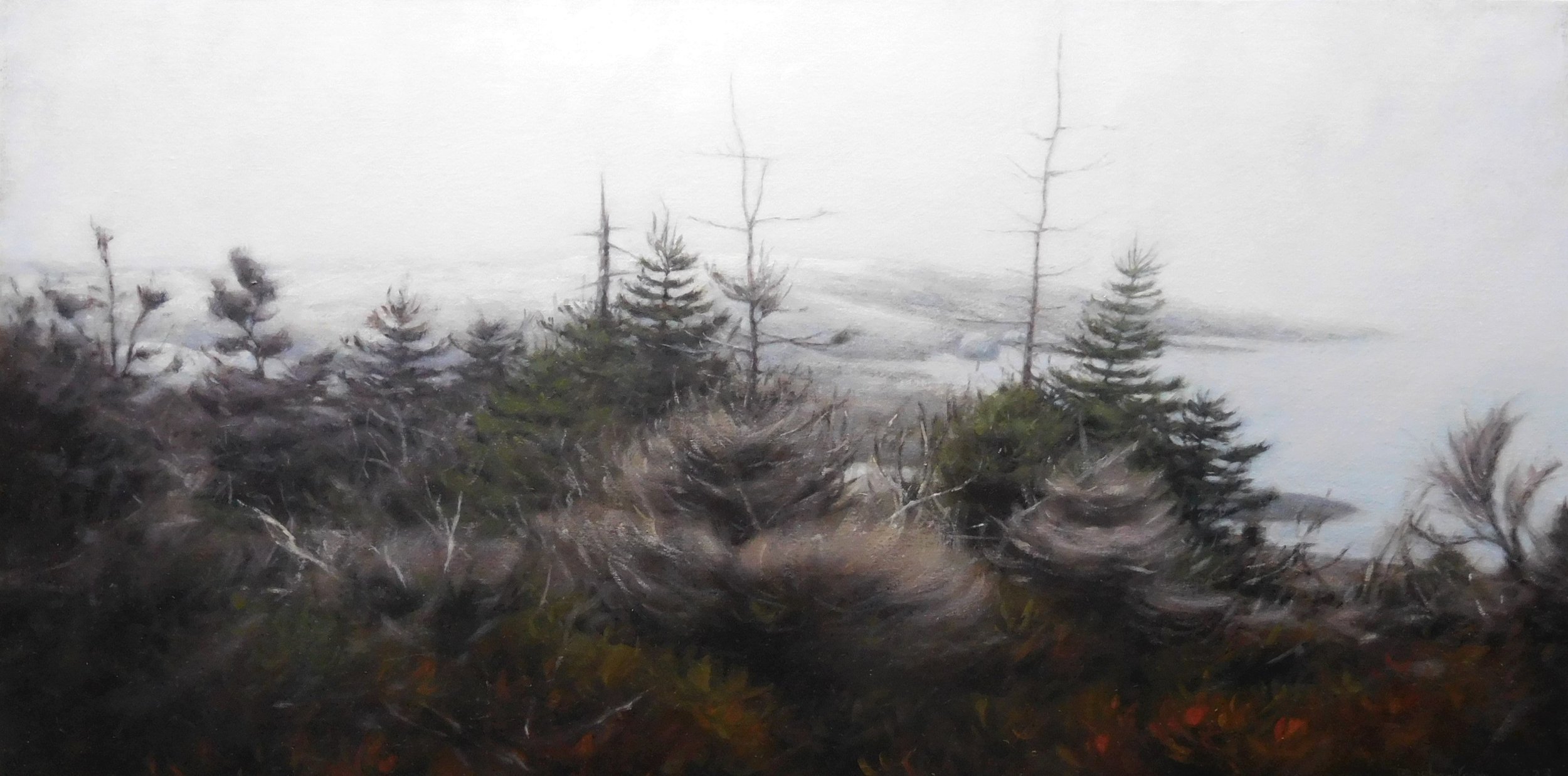
Maine: The painted state
Greenhut’s biennial landscape show, Maine: The Painted State, is both a proud nod to Maine’s storied and outsized place in American Art History, and a celebration of the exciting ways the landscape tradition continues. How it is being carried on, and in some cases, reinvented, by contemporary Maine artists.
Maine has been an artist magnet for over 100 years. The allure of its rugged coastline and the romance of the sea, its lakes and islands, its wild beauty and isolation and, of course, the distinctive qualities of its northern light have captivated generations of painters. Our landscape has been celebrated -- mythologized, really -- in classic works by some of the greatest painters in American Art History, from Thomas Cole to Frederick Church to Winslow Homer to Andrew Wyeth, Marsden Hartley, Neil Welliver, and beyond.
But the magic of Maine’s landscape is not a finite quantity, confined to a specific period. It is, in fact, eternal and Maine remains a vital locus of artistic inspiration, coursing with creative energy. Our April biennial, “Maine, the Painted State,” is a celebration of the exciting ways the landscape tradition continues.
Liz Awalt, Joel Babb, Susan Barnes, Chris Beneman, Todd Bezold, Matt Blackwell, Mary Bourke, Jeff Bye, Thomas Connolly, David Driskell, Grant Drumheller, David Estey, Sarah Faragher, Maurice Freedman, Philip Frey, Kathleen Galligan, Roy Germon, Alison Goodwin, Tom Hall, Conley Harris, Maret Hensick, Thomas Higgins, Craig Hood, Jon Imber, Tina Ingraham, William Irvine, Sarah Knock, Marty Kremer, Margaret Lawrence, Jonathan Mess, Dean McCrillis, Daniel Minter, Nancy Morgan Barnes, John David O’Shaughnessy, Colin Page, Tom Paiement, Alison Rector, Glenn Renell, Alec Richardson, Judy Schneider, Kathi Smith, Mike Stiler, Christopher Volpe, Michael Walek, Sean Ware, Neil Welliver, John Whalley, Holden Willard and Tim Wilson.
(CLICK IMAGE TO ENLARGE; CURSOR OVER ENLARGED IMAGE FOR DETAILS)

Greenhut Artists
(CLICK IMAGE TO ENLARGE; CURSOR OVER ENLARGED IMAGE FOR DETAILS)
Opening Reception: Thurs., Nov. 3, 5-7 pm
Artist Talk: Sat., Nov. 5, 1 pm